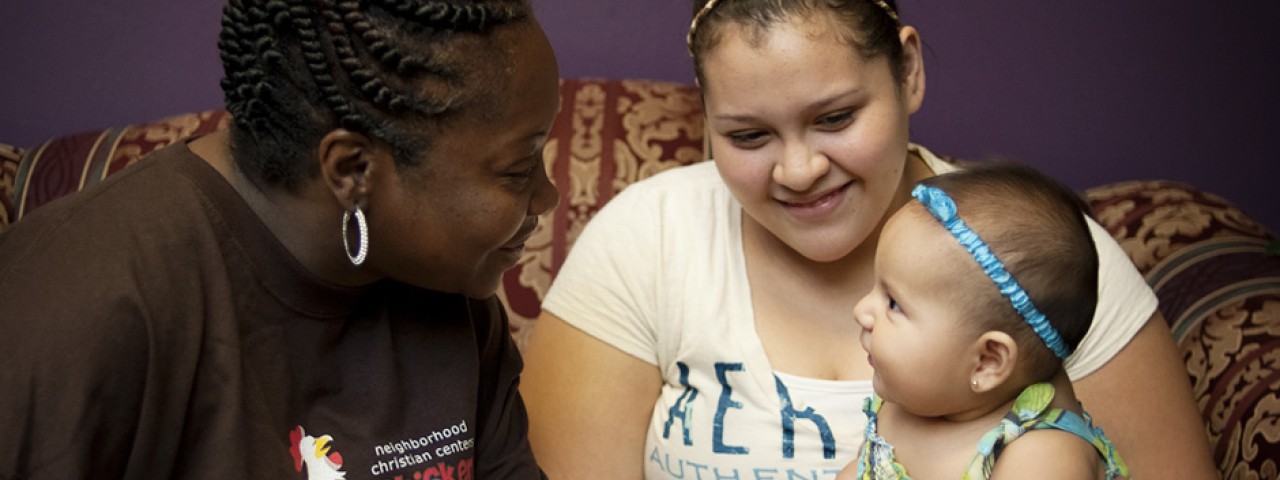Partnership Highlight: Neighborhood Christian Center
- Tweet

JoeAnn Ballard spent her childhood as one of 45 foster children being raised by her great aunt and uncle in rural Mississippi. This experience turned out to be one of the best things to happen to her; saving her from an unhealthy home and showing her what love and care looked like. Her childhood so inspired her that she eventually open her own home to children in need--housing over 75 in a given year. So when local leaders saw a need for an urban neighborhood center in Memphis, JoeAnn became the obvious choice to head the new organization.
Since that time over 30 years ago, much has changed at the Neighborhood Christian Center. But one thing that has remained constant is their focus on ending the cycle of poverty in the Memphis community. In recent years, however, it came to their attention that they could make more of a impact by focusing on the youngest of children; a realization that led to their partnership with The Urban Child Institute.
“Our founder [JoeAnn Ballard] and Gene Cashman [President and Chief Executive Officer of The Urban Child Institute] developed a relationship over other services, and she began to see a direct correlation to what we were doing,” says Ephie Ballard-Johnson, daughter of JoeAnn and Monroe Ballard and the current president and CEO of the NCC.
A few years ago, the two organizations entered into a more formal partnership based around early childhood initiatives. Ballard-Johnson describes the NCC’s role almost as a translator of The Urban Child Institute’s message: “We take the facts and science about brain development--the effects on children when things don’t happen in the right time--and we reinterpret it for the communities we serve,” Ballard-Johnson says. “Most of the data and information is in terminology that’s not day-to-day for the typical person in the underserved population.”
As an example, the NCC took the top 10 things a parent should do to help their child’s brain develop and broke them down into four simple and easy action steps. The result became part of the UCI’s Touch, Talk, Read, Play campaign.
Not only does the NCC help translate the message about early childhood development, they also help transmit it. “Before, we had tried to get the message out through various lectures and talks. We were very focused on early childhood development, but we weren’t very focused on who should be getting the message,” says Hank Herrod, Senior Fellow with The Urban Child Institute. With the size of the NCC’s organization – it’s affiliated with almost 80 churches – and the trust it instills in its clients, the partnership was a perfect fit.
The campaign around early childhood development also fits well with other initiatives that NCC is doing. The organization’s Operation Smart Child uses the same information about health, environment, and brain development to help parents – especially young mothers – raised the smartest child they can. Mothers who are enrolled in the program earn points for attending info sessions or by doing things such as taking their child in for a check-up. They can then redeem the points to purchase items they might need, such as car seats, baby beds, and diapers.
Ballard-Johnson acknowledges it might not seem like the typical approach, but, as she says, they are not the typical agency. “There is a rhyme and a reason to what we do,” she says. “We try to help families where they are. We’re not serving sushi and Perrier. That’s not going to attract our girls and the families we serve.”
Instead, they use events such as Easter Jam to keep families engaged while at the same time reinforcing the ideas of Touch, Talk, Read, and Play. The event included an Easter egg hunt and story time for the little ones, while signs reminded parents of the little ways -- with colors and shapes, for instance -- they were already helping their babies’ brains develop.
The partnership between the NCC and The Urban Child Institute also provides a sort of real-life laboratory for the work the groups are doing. “NCC is an organization that will allow us to show what could happen to the children of parents exposed to this knowledge. We could potentially do things to scale,” Herrod says. “We could take this to the entire Memphis community. If it works here, it would work community wide.”
For more information on the Neighborhood Christian Center please visit their website.
